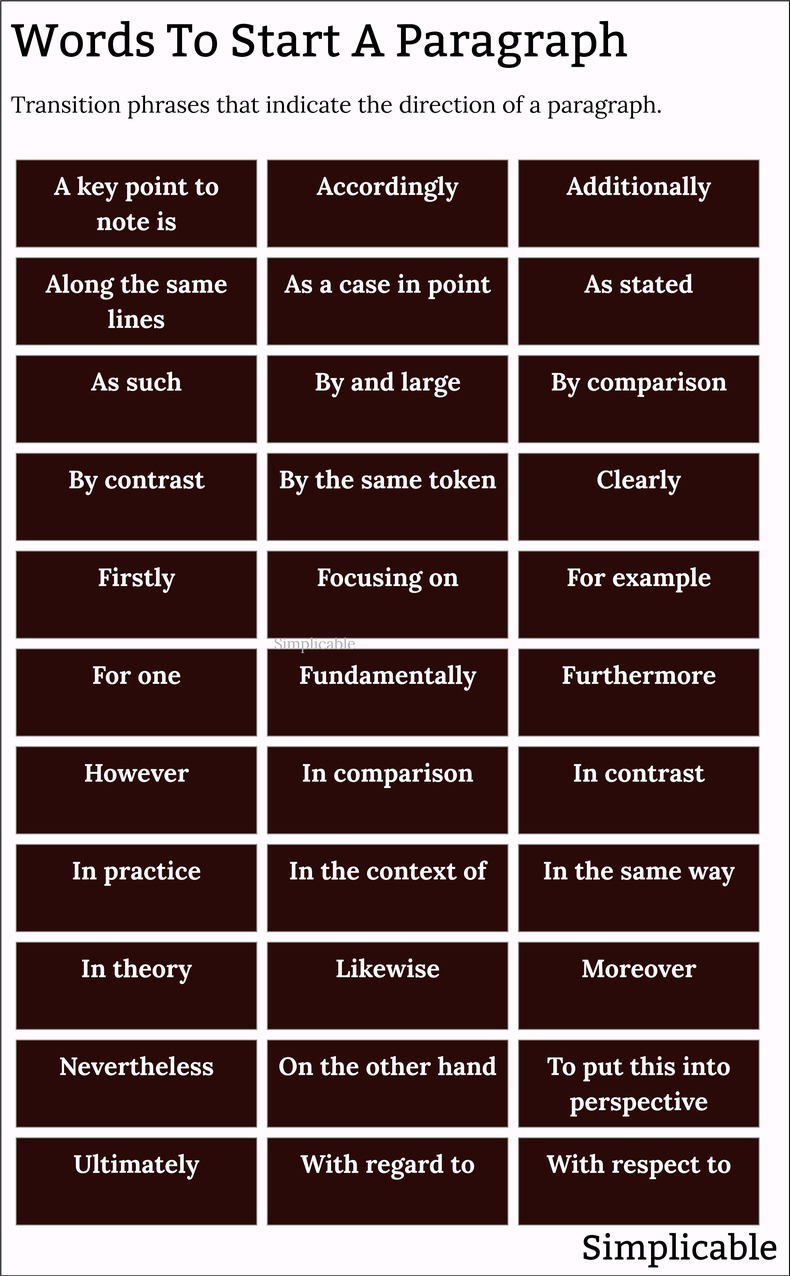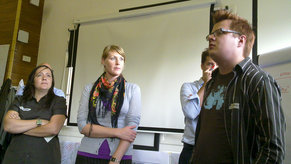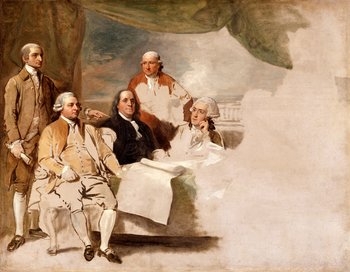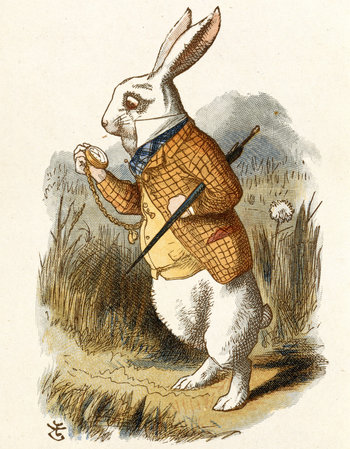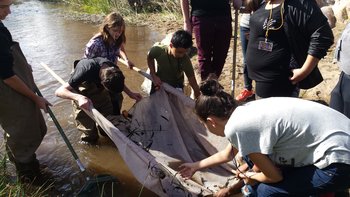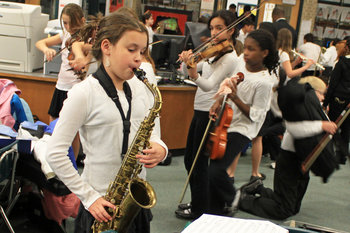A key point to note is | A significant aspect is |
Accordingly | Additionally |
Addressing | Along the same lines |
Amidst | Analogously |
As a case in point | As a typical example |
As stated | As such |
At best | At first |
At its core | At its fundamental level |
At its most basic level | At large |
At last | At length |
At most | At the heart of |
At the outset | At times |
At worst | Beyond any doubt |
By and large | By comparison |
By contrast | By the same token |
Central to this is | Clearly |
Concerning | Consequently |
Conversely | Correspondingly |
Dealing with | Delving into |
Discussing | Diving into |
Equally | Essentially |
Exploring | First and foremost |
Firstly | Focusing on |
For example | For instance |
For one | From a foundational perspective |
Fundamentally | Furthermore |
Henceforth | Here's a scenario |
How can we evaluate | How do we account for |
How do we reconcile | How do we understand |
How does this impact | How does this relate to |
However | In brief |
In comparison | In connection with |
In contrast | In essence |
In fact | In its simplest form |
In like manner | In much the same way |
In part | In practice |
In reality | In reference to |
In short | In sum |
In the beginning | In the context of |
In the first place | In the same way |
In theory | In truth |
In turn | Inevitably |
Initially | It is apparent that |
It is clear that | It is evident that |
It is undeniable that | Let's look at an example |
Likewise | Moreover |
Nevertheless | Nonetheless |
Notably | On another note |
On balance | On occasion |
On one hand | On the contrary |
On the other hand | One important aspect is |
One key factor is | Pertaining to |
Primarily | Regarding |
Regrettably | Similarly |
Subsequently | Surprisingly |
The basis for this is | The conversation surrounding |
The core concept is | The cornerstone of this is |
The crux of the matter is | The data shows |
The essence of this is | The foundation lies in |
The main emphasis is on | The main idea is |
The primary focus is | The root cause is |
The starting point is | The underlying principle is |
Therefore | This analysis reveals |
This makes it clear that | To a similar extent |
To analyze | To begin |
To begin with | To break down |
To clarify | To conclude |
To consider further | To delve into |
To demonstrate | To elaborate |
To examine | To explore |
To give an overview | To introduce the topic |
To lay the groundwork | To make it clear |
To offer an explanation | To provide context |
To provide insight into | To put this into perspective |
To set the stage | To shed light on |
To start | To unravel |
Touching upon | Ultimately |
Undoubtedly | Unquestionably |
What are the broader implications of | What are the consequences of |
What are the key factors influencing | What are the possible explanations for |
What are the underlying reasons for | What is the connection between |
What is the significance of | Why does this matter |
Why is it important to consider | Why is this aspect significant |
Why is this issue noteworthy | Why should we pay attention to |
With regard to | With respect to |
Additions
Transitions that indicate that you are adding something or introducing new information such as "furthermore", "additionally" or "similarly."Contrast
Phrases that signal contrast or differences such as "however", "conversely" or "in contrast."Comparison
Transitions that compare things such as "likewise", "in comparison" or "in contrast."Cause & Effect
Drawing conclusions from what you have just stated with transitions such as "therefore", "thus" and "as a result."Sequence & Chronology
Indicating a sequence or chronological order with transitions such as "firstly", "afterward" or "ultimately".Illustration & Example
Introducing illustrations and examples with transitions such as "for example", "for instance" or "to illustrate."Referencing
Referencing a person, place, event, theory or concept with phrases such as "regarding", "concerning" or "with respect to."Questions
Pose a question or point to unknowns with phrases such as "what is the connection between."Conclusions
Indicating your conclusion with transitions such as "in conclusion", "in summary", or "this analysis shows."Implications
Drawing out the implications of your conclusions with phrases such as "in future", "further research may" or "the broader implications of."Original
Overusing transition phrases can make writing feel repetitive, unoriginal and difficult to read. As such, longer original phrases that indicate your direction are often a good choice with phrases such as "Napoleon's strategy may have ..."Overview
It is common to start a paragraph with transitions that quickly indicate the direction you are going with your argument, analysis or narrative. These have several basic types as follows.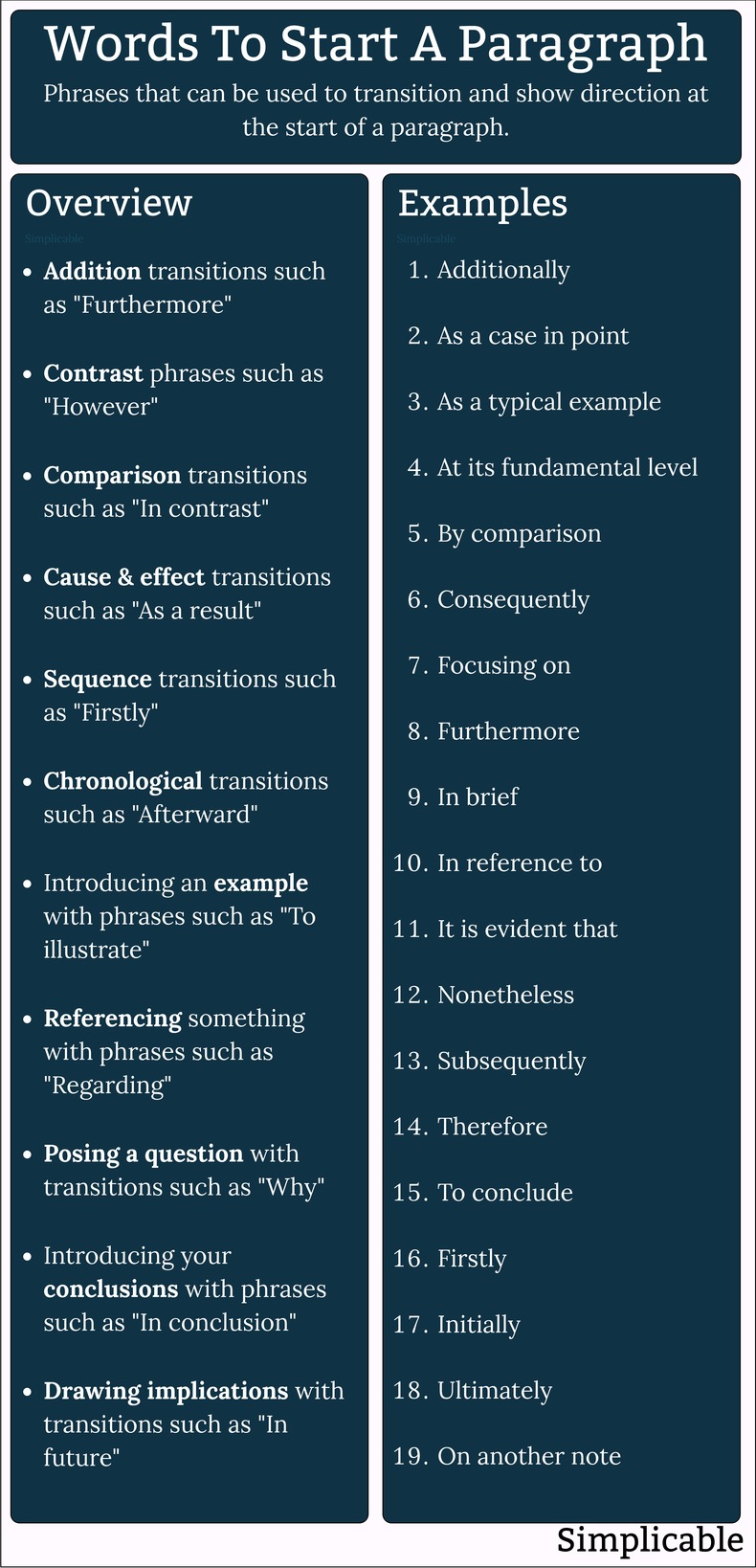
Summary
The following are select words from the list above that may be useful for beginning paragraphs.